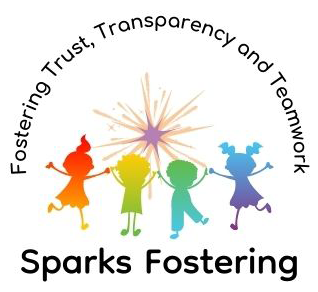Being a foster carer is a challenging role, but also a highly rewarding role, perhaps one of the most rewarding roles one can have. The opportunity to improve a vulnerable child’s life should be the primary motivation for all foster carers.
Becoming a foster carer is a significant decision – the role impacts the lives of the foster carers, any other household members and even the lives of family and friends who will interact with (and perhaps support) the children being looked after. The decision to become a foster carer takes careful consideration, research and discussions with those close to the foster carer. Many foster carers spend several years thinking about becoming foster carers before they decide that the time is right for them to apply; Sparks Fostering welcomes discussions with people who haven’t yet decided to foster and are making preliminary enquiries – we are happy to provide advice when it is required.
Some foster carers are motivated to apply solely because of the allowance; however, they are very unlikely to pass the assessment process – the only way they would pass the assessment is by being dishonest about their motivation – when their dishonesty is exposed they would be de-registered. People who aren’t motivated to support the vulnerable children and young people invariably find the role of being a foster carer very dissatisfying. Relative to the number of hours and amount of work carried out by foster carers, the allowance isn’t enough for it to be considered a ‘wage’.
Sadly, all fostering providers also have to be alert to those who apply to foster and are a risk to children. Some of these people are excellent liars and even manipulate those in their personal lives. Sparks Fostering works to eliminate those people from fostering by having a very rigorous recruitment process and also by providing strong oversight and supervision of foster carers following approval. Foster carers are trained and supported to understand that rigorous supervision isn’t a reflection of judgement or poor trust between the social worker and foster carer – rather, it is indicative of good professional practice by the social worker. Sparks Fostering also works hard to get to know the children, to establish trust with the children and to regularly seek feedback from the children about the care they are receiving.
Motivation to foster is usually evidenced by the applicant’s previous actions and experiences; for example, the applicant may be a parent of children who provide excellent references, may work with children and/or may carry out voluntary work involving vulnerable children. Being prepared for the role (for example reading all of the information on this website) also indicates commitment to the fostering role.







